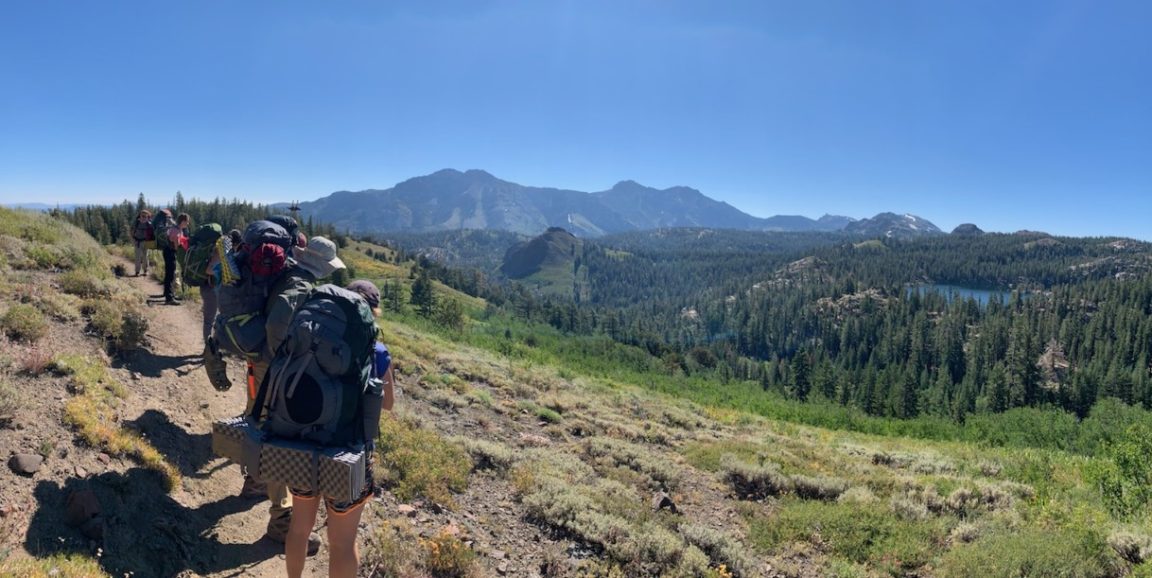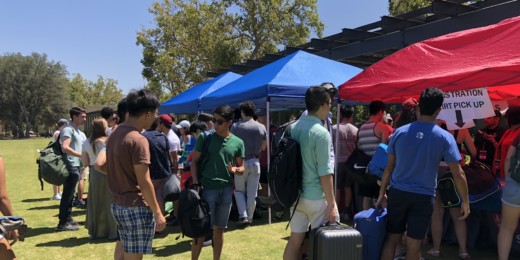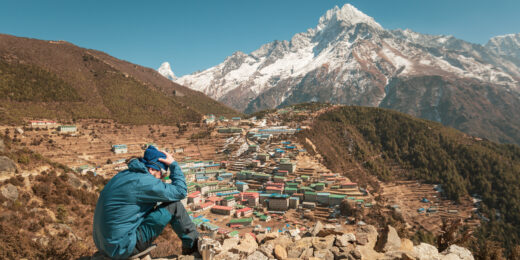High in the Sierra on an August night, nine future physicians huddled inside a three-person tent. As the wind whipped outside the tent, they shared stories from their lives and explained how they had come to be first-year medical students at Stanford.
Sitting hip to hip with a tangle of feet in the middle, the nine new classmates had met only two days earlier when many of the incoming medical students gathered on campus for the start of SWEAT, a pre-orientation camping trip to help students get to know each other before classes start.
They left from campus Saturday, driving up to the Stanislaus National Forest -- between Lake Tahoe and Yosemite -- and setting up a common base camp. From there, they split into small groups and hiked to campsites throughout the forest. At night, each group sat together for Spotlight, a tradition where one student after another told the reasons they chose to study medicine.
Alex Jin talked about being diagnosed with a rare muscle cancer when he was six years old, the same year his father's parents were also diagnosed. "It was a pretty rough winter for our family," he said. "All three of us had some form of cancer."
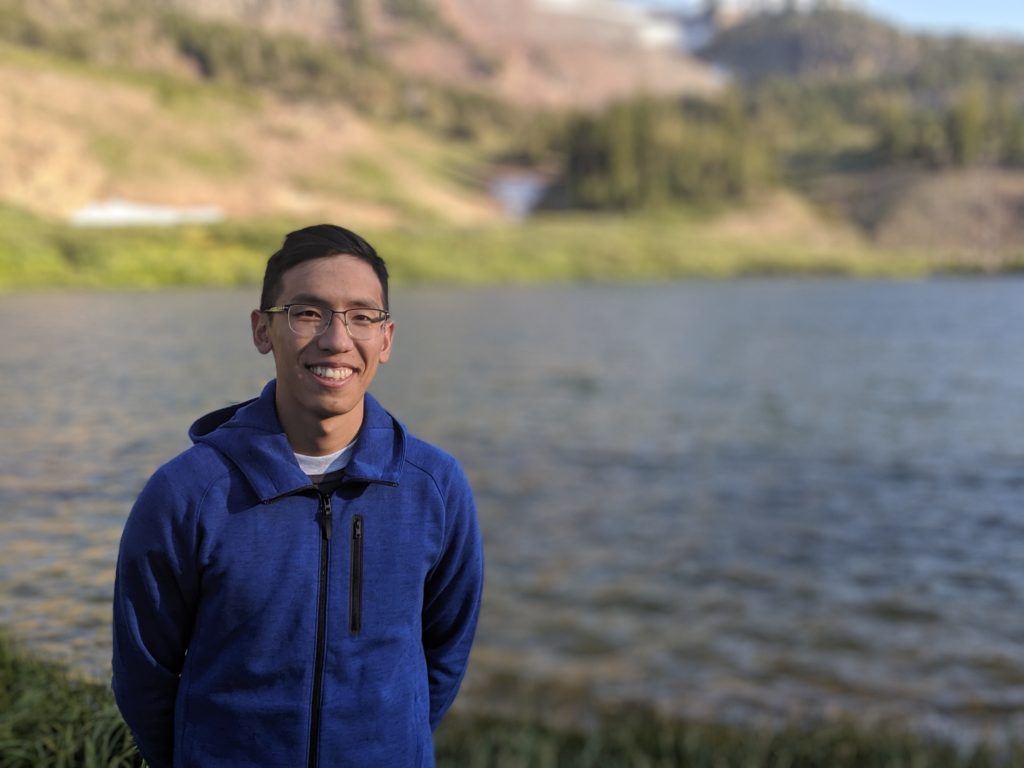
Jin, who grew up in New Jersey, stayed at the Children's Hospital of Philadelphia for two or three days at a time, for rounds of chemotherapy that he endured every other week. Now, the cancer is gone -- he's been in remission since 2003 -- but the gratitude remains.
"I think about my indebtedness to my doctors and to the country that could provide this research environment," Jin said. "I felt lucky to be treated in the United States."
Jin told his story and listened as his classmates told theirs. "They had incredible stories," he said. "We'd all overcome so much to get here."
Led by two second-year students, the group had hiked four miles of rolling trail and a mile of steep switchback turns to set up camp at a spectacular alpine lake. "When you're spending every waking second together and making sure each other's hydrated," said Nick Betancourt, a first-year student and former Teach-for-America teacher, "you get to know each other."
And the group got to talking about what they had in common. "We were all feeling the gloom or the dread that we're about to embark on something very difficult," Betancourt said. "Four to five to six years and additional training after that with several benchmark tests."
"Especially coming to a big school, you feel like you're an imposter that maybe you're in over your head," he said. "Whether they came from Harvard or a nontraditional background, we're all coming in with a feeling of 'Oof, this is big, I'm not sure I'm ready for it but this trip helps to ease your mind. You think, 'We're going to do this together.'"
Inside the tent, Betancourt spoke last. "I'm not much of a sharer," he said, "but it felt like a safe space." When he finished, the whole crew poured out of the tent and saw the Milky Way, shining across the sky on a completely cloudless night.
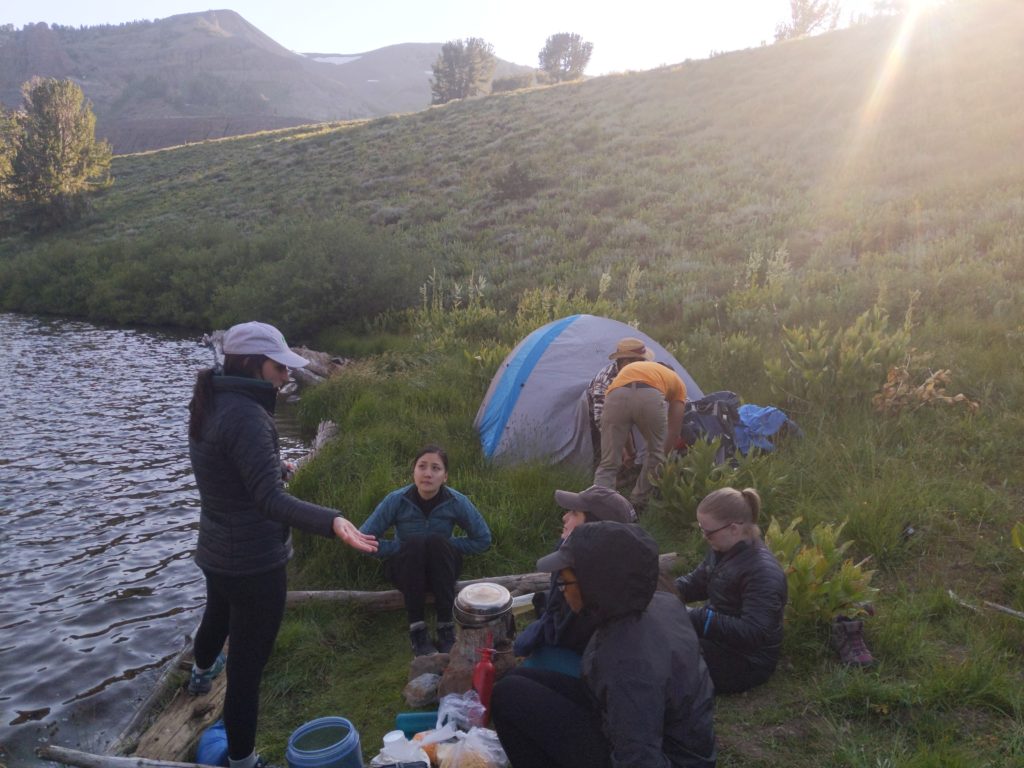
Sponsored by BeWell and the School of Medicine Alumni Association, SWEAT is offered to all incoming medical students, regardless of camping experience. Some future doctors had never camped or carried a pack, and others were avid outdoorsmen and women.
Amelia Bryan, a returning second year from the Portland area, loved her SWEAT experience in 2018 so signed on to organize this year's trip. She assigned people to groups and with a team of second years selected the hikes and hiked them the week before. "When you're a student going on the trip, everything magically happens," she said, acknowledging that a lot of work goes in behind the scenes.
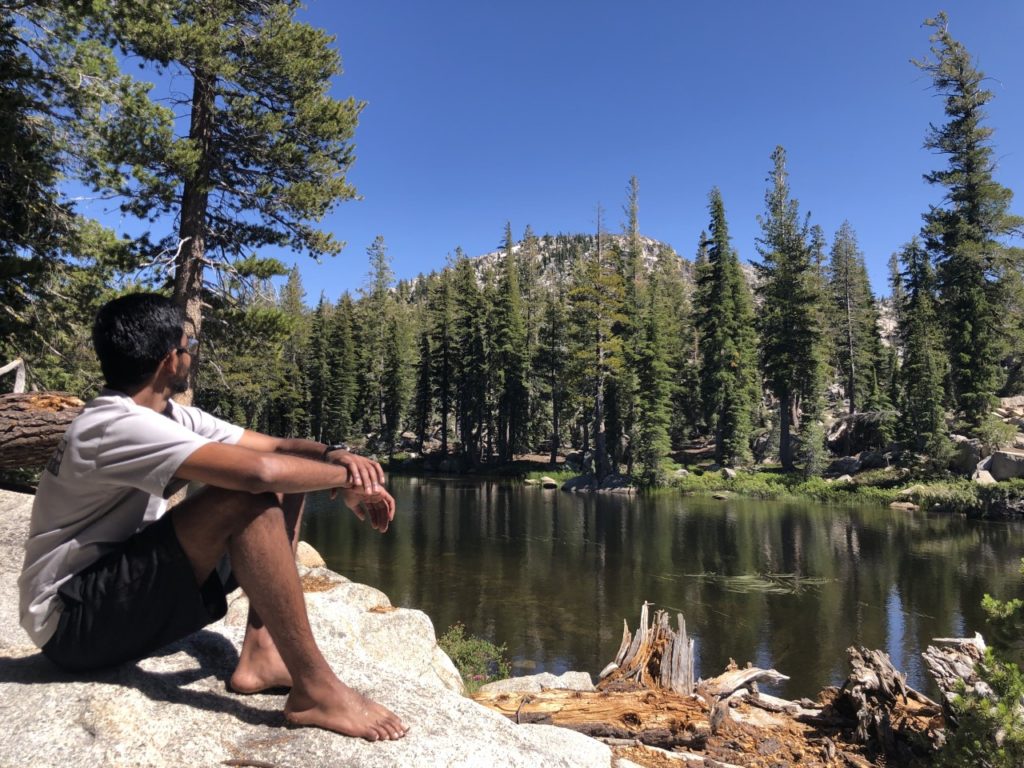
Like the other second year SWEAT leaders, Bryant volunteered to work on it because her SWEAT experience was meaningful. "Most SWEAT groups have reunions the first week of school," she said. "It's really nice in the first couple months to have people to talk to."
Ade Ayoola, a second-year student from Grand Rapids, Michigan, also had great memories from her trip and her group last summer. "We were all a little bit afraid that everyone would be impressive and amazing," she said. "We talked about stupid things and told jokes. And the trip made us feel like Stanford was someplace we could see ourselves."
Top photo courtesy of Amelia Bryan


